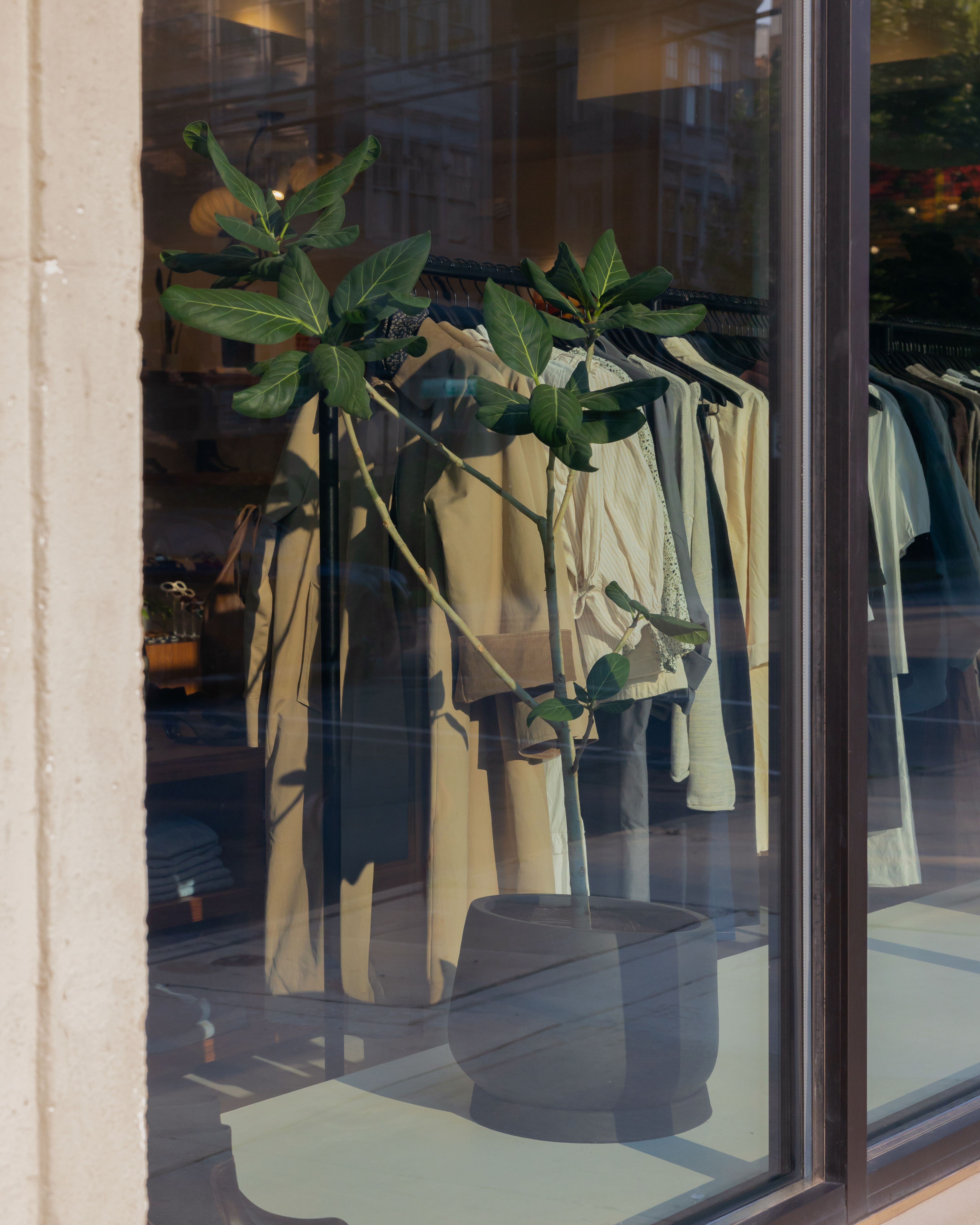Beyond our curated collections, we’re dedicated to promoting sustainability in our community through initiatives like pop-ups for local designers, donations to Detroit organizations like Alternatives for Girls and the Empowerment Plan, an annual grant for sustainable fashion designers in Detroit, and the creation of ARCHIVE by eugenie—a sister store that extends the life of products by offering sustainable apparel outside traditional seasonal cycles.
Our dedication to the environment shapes every aspect of our operations, from the brands we partner with to the packaging we use. We source boxes, bags, and mailers that are better for the planet, using materials like post-consumer waste, recycled tree-free content, and compostable fibers. By choosing packaging that is almost entirely USA-made, we cut down on transportation-related pollution and invest in our local economy.
This same commitment extends beyond our walls and into our hometown of Detroit. We actively work to fill the gaps in our city’s infrastructure by organizing clothing drives and advocating for commercial recycling options in our neighborhood. Together, we believe in shaping a future where sustainability transcends factory floors and becomes an integral part of the small, everyday moments in our lives.
